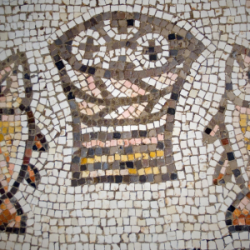Welcome readers! Please subscribe through the buttons on the right if you enjoy this post.

In Matthew’s gospel, we read:
“Blessed are you when people insult you, persecute you and falsely say all kinds of evil against you because of me. Rejoice and be glad, because great is your reward in heaven, for in the same way, they persecuted the prophets who were before you. (Matthew 5:11-12)
Jesus spoke of changes that could have turned the social system he and his audience lived in on its head. Those who benefitted from the system saw his inclusion, equity, compassion, justice and love as dangerous. If it were followed all the way out from our personal relationships to the systems that organized society, Jesus’ social vision would unsettle everything.
Jesus offered life, security, and assurance to poor, mourning, hungry, and marginalized people, and so the prioritized, privileged, and powerful labeled him as an enemy. Their fear of change quickly turned into fear of complete ruin. This is what I believe was underneath the author of John’s gospel placing these words in the mouths of the social, political, economic, and religious elites:
“You do not realize that it is better for you that one man die for the people than that the whole nation perish.” (John 11:50)
This past Easter season, this passage was on my heart a lot.
The Jesus story isn’t about dying. Jesus’ death is part of the story, but the story is much more about reversing, undoing, and overcoming his death. Jesus’ death was not natural. It was an execution, an execution plotted by the elite class who felt they had everything to lose from people following Jesus’ social vision.
The story isn’t simply about this execution though. It’s also about life-giving things that overcome death-dealing things. The teachings of Jesus, such as treating others the way you would like to be treated, loving one’s enemies, offering mutual aid, sharing, including those who are presently othered, and centering marginalized people, these are things that death could not silence!
Jesus’ execution did not stop those values. Ultimately they lived on in the stories that the early Jesus followers told in the following decades. His life-giving values are still competing with and overcoming death-dealing things today. Jesus was a conduit of change, and he called his followers to be conduits of change, as well.
Today, we too can choose to be conduits of change.
Yet change never comes without pushback.
Jesus assured his followers,
“Blessed are you when people insult you, persecute you and falsely say all kinds of evil against you because of me. Rejoice and be glad, because great is your reward in heaven, for in the same way, they persecuted the prophets who were before you. (Matthew 5:11-12)
We’ll talk about both positive and negative pushback next, and how we can respond in life-giving ways to both.

















